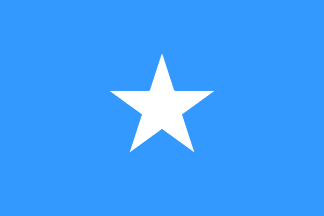Islamists Out, Somalia Tries to Rise From Chaos
KISMAYO, Somalia, Jan. 7 — Every Friday morning in this seaside town, the future of Somalia plays soccer on a bone-littered beach.
Boys dribble around animal carcasses and oil drums that have been dumped by the shore. Ships covered with rust lean into the sand. The palms sway, the seagulls squawk and a few girls in veils hang back, watching the action.
“This is all we know,” said Mahmoud Abu Gur, 19, pointing to a dozen haphazard soccer games. “This.”
The road ahead for Somalia begins in places like Kismayo, dusty, chaotic, forlorn wrecks of cities where the list of dire needs like food, water, shelter, a fire department, law, order — and hope — is so overwhelming that people just shake their heads and smile when asked where they would begin.
In just two weeks, the Somali political world has been turned upside down, bringing ambitious governance and reconstruction issues into focus for the first time in 16 years. The Islamist forces that ruled much of the country for the past six months are out. The transitional federal government, which had been considered totally feckless by those both at home and abroad, is in. The surprising reversal is because of thousands of Ethiopian troops still in Somalia who routed the Islamists after Ethiopian officials declared the growing movement a regional threat.
Kismayo is an old Arab port town of 700,000 people, Somalia’s third most populous city, after Mogadishu, the capital, and Hargeysa, in the north. But town elders in all three places are struggling with the same questions: how to provide security; what to do with the remaining Islamists; how to determine the proper role for religion, an important theme in Somali society; and how to unify rival clans, rebuild infrastructure and live with the Ethiopians. Many Somalis say they are starting at less than zero.
“After nearly two decades of anarchy,” said Abdi Artan Adan, a retired diplomat in Kismayo, “people just don’t want to be ruled.”
Ever since Somalia’s central government collapsed in 1991, the country has been notorious for the staggering levels of firepower on the streets. The new government made disarmament its first step but despite meetings, pleas, deadlines and threats, officials have collected few weapons. In Mogadishu, hundreds of people rioted Saturday at the prospect of house-to-house searches. The local government there indefinitely postponed the issue.
That led Jendayi E. Frazer, the United States assistant secretary of state for Africa, to cancel a planned trip to Mogadishu on Sunday. She would have been the highest-ranking American official to set foot in Mogadishu since American troops left the country in 1994 after a troubled aid mission. American officials said the security situation was too unstable.
On Sunday night, insurgents in Mogadishu attacked a downtown army barracks and residents said that four civilians were killed.
In Kismayo, no weapons have been turned in. Many elders agreed that everyone would be better off once all guns were gone, but no one seems to want to volunteer theirs first.
“It’s a custom for Somalis to attack someone who doesn’t have weapons,” said Sultan Abdi Rashid Dure, a leader of the Galjel subclan. “When I was young, we used knives.”
With long, wrinkled fingers, Mr. Dure, 56, traced the web between disarmament, clans, revenge and anarchy. “During these years, every clan killed,” he said. “A lot. Now there are so many feuds, so many scores to settle. We are all afraid that if we give up our weapons, other clans will take their revenge.”
The Islamists, using Islam as a bridge, did a better job than any recent authority to unite warring clans. But their military was no match for the better-trained, better-equipped Ethiopian-led troops, and now that the Islamists are gone, many fear a return to clan mayhem.
Somalia has always been somewhat of a political paradox — one of the most homogeneous countries in Africa, with one language, Somali, and one religion, Sunni Islam, but at the same time is one of the most violently divided. Clan allegiances have always mattered.
Dahir Ali Barre, the leader of a small Kismayo political organization, said that when he was a teenager in Mogadishu in the early 1970s, he did not know which clan he belonged to. It was not until 1974, when he was sent to a village in Somalia’s barren interior as part of a national effort to foster cross-clan understanding, that Mr. Barre learned he was a Marehan. But when he returned to Kismayo in the mid-90s after some years in the capital, the first thing he did was seek out the Marehan neighborhood, for protection. “After all those years of sophisticated culture,” he said, “we’ve basically gone back to the bush.”
The transitional government has theoretically addressed the clan issue by its so-called 4.5 formula, which allots equal representation to the four major clans and a smaller percentage for all the minor clans. The government was set up in 2004 with help from the United Nations and is supposed to rule until the next elections, proposed for 2009.
Already it seems that clan militia leaders are well positioned. The big man in Kismayo is Barre Aadan Shire, the transitional government’s defense minister and a former warlord, whose strong jaw, natty goatee and bald head lend him an uncanny resemblance to Lenin. He says many people in Kismayo have asked him to reach out to the Islamists, but he does not want to. The last of the Islamist fighters have retreated to the Kenya border, about 150 miles away.
“If we were going to compromise,” Mr. Shire said, “why go to war?” He gave the Islamists credit for bringing a degree of order, but said they pushed religion too far. Yet he predicted that Somalia’s permanent government would not be purely secular. He does not see beer or bikinis in Somalia’s future. “We are a traditional people,” he said.
It seems to be a fine balance. Several Kismayo residents said they grew to resent the Islamists after they banned movies, Western music, cigarettes and khat, a mildly narcotic plant that is chewed here. “Those rules were a total fallacy,” said Abdullahi Jama Ali, who was once part of an underground Islamist group. “The Koran doesn’t say anything about cigarettes. The Islamic religion is like an ocean, everyone can swim where he likes.”
With the Islamists in hiding, Kismayo’s market is bustling again. But the grapefruit farms on the outskirts of town are still a mess, irrigation canals are full of sand, roads are dreadful and government buildings are lonely, shot-up places.
Kismayo’s jail is a single windowless cell, barred by a log, where four sweaty prisoners, accused of stealing a mattress, wait for a justice system to be set up. There are 22 police officers for the entire city.
Not far away, there is a displaced persons’ camp, a field of three-foot-high domes made of sticks and plastic bags. The salty breeze nearly carries them away.
Hundreds of Ethiopian soldiers occupy this wasteland. Though many of its people are Muslims, Ethiopia also has a long Christian history, and already some Muslim extremists, including leaders of Al Qaeda, have vowed to respond with a holy war to drive the Ethiopians out. Ethiopian officials say they plan to withdraw their forces in a few weeks and hand over control to a yet-to-be-formed African peacekeeping force.
With Somalia’s longtime fears that Ethiopia might swallow it, the sooner that happens, the better. On Saturday, Nasteh Dahir Farah, a reporter for a Kismayo radio station, visited the town’s airport with three foreign journalists. The foreigners were allowed in. Mr. Farah was not. He was shooed away by Ethiopian soldiers at the gate and told never to come back.
“This is my country, not theirs,” he said. “If I didn’t have a job,” Mr. Farah muttered, straightening himself up and smoothing the shirt where he had been poked in the chest, “I’d join the resistance.”
A little humiliation, it seems, goes a long, long way.




No comments:
Post a Comment